As a BetterHelp affiliate, we receive compensation from BetterHelp if you purchase products or services through the links provided
Deep sleep has a vital role in restoring the body and mind. It’s also called 3NREM sleep, the deepest stage of the sleep cycle, which mostly occurs during the first part of the sleep cycle. The brain produces delta waves at this point of sleep, and it’s challenging to awaken someone during this sleep stage.
Quality sleep is just as significant as sleep quantity. Unfortunately, many suffer from a deep sleep deficit, missing out on its rejuvenating qualities. Several factors interfere with sleep quality, so let’s look at how to increase deep sleep.
Sleep Hygiene Tips
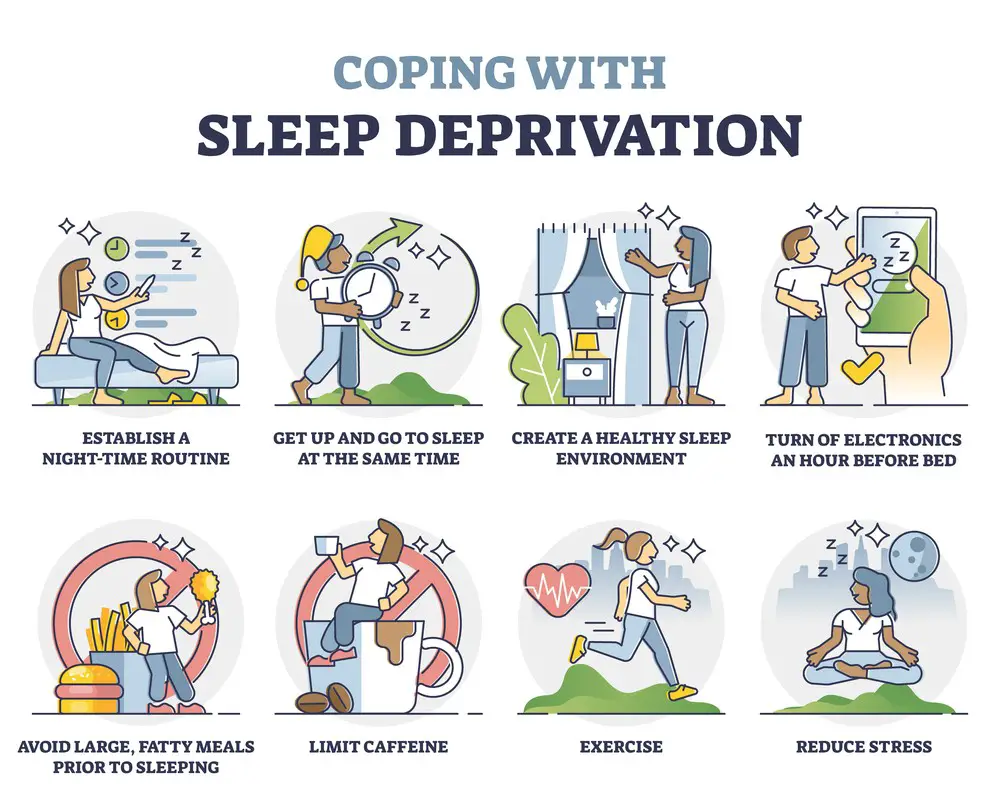 If you don’t know where to start in your quest how to increase your deep sleep, it’s essential to know that your age will play a role in how much you need. Very Well Health mentions the approximate times required for deep sleep: for kids and school-aged teens, it’s 20 to 25% of their total sleep time, and for adults, it’s between 16 and 20%.
If you don’t know where to start in your quest how to increase your deep sleep, it’s essential to know that your age will play a role in how much you need. Very Well Health mentions the approximate times required for deep sleep: for kids and school-aged teens, it’s 20 to 25% of their total sleep time, and for adults, it’s between 16 and 20%.
Studies show that age decreases the time we spend in deep sleep. Interestingly, men have the most considerable decrease in deep sleep as they get older than women.
Good sleep hygiene is the habits that help you optimize sleep. It entails a daily routine, a pre-bedtime routine, and creating a pleasant sleep environment in your bedroom.
These are some hygiene tips for better sleep quality:
- Daily routine – Physical activity like walking or exercise during the day will help you sleep better. Additionally, avoid alcohol, caffeine, and heavy meals before bedtime. Daylight exposure helps regulate circadian rhythms, which can assist with quality sleep.
- Be constant– Go to bed at the same time nightly and wake up at the same time in the morning, even over weekends and holidays.
- Limit In-Bed Activity – To build a link between sleep and being in bed, limit activities like reading, mobile use, watching TV, etc. It’s best to only use your bed for sleep, with sex being the only concession.
- Create a pleasant bedroom environment – Your room must be quiet, dark, and relaxing and have a comfortable bed and linen. Therefore, install blackout curtains, blinds, and air conditioning to keep it dark and cooler. It’s best to remove electronic devices from the bedroom.
- Prioritize Sleep – Many temptations will make you want to skip sleep. These include studying, work, socializing, etc., but it’s vital to prioritize sleep. Base your target bedtime based on your required wake-up time, and try to get into bed at night.
Optimize Bedroom Environment
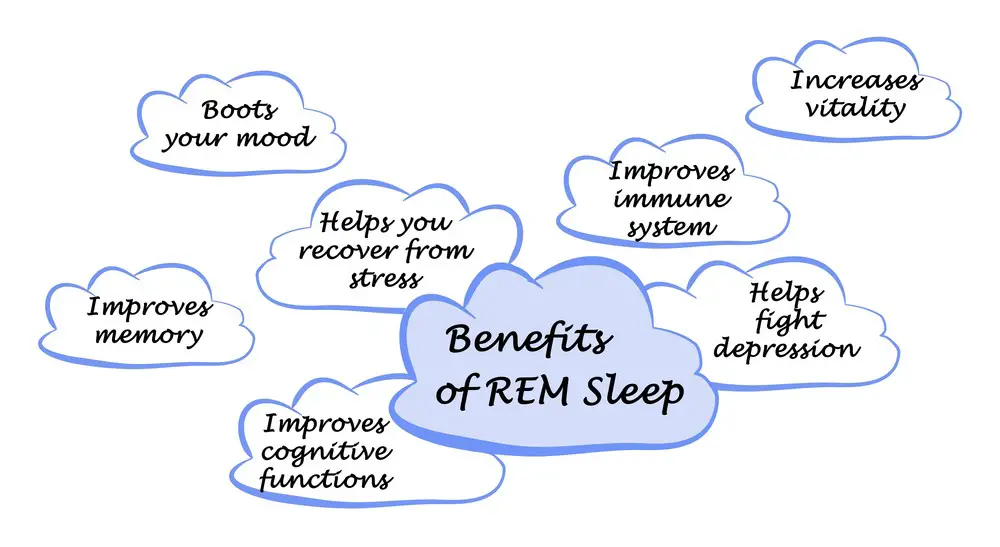 How to increase deep sleep? Let’s look at some of the abovementioned points about sleep hygiene. An optimized bedroom environment can improve your sleep quality. A cooler, dark, quiet room can help you fall asleep quicker while ensuring a comfortable room to enhance your sleep quality.
How to increase deep sleep? Let’s look at some of the abovementioned points about sleep hygiene. An optimized bedroom environment can improve your sleep quality. A cooler, dark, quiet room can help you fall asleep quicker while ensuring a comfortable room to enhance your sleep quality.
Most people prefer a temperature of between 60°F and 67°F (15.6°C and 19.4°C) for sleeping, but this does not mean you must sleep at this temperature if it’s too low.
It’s important to have a comfortable mattress and pillows. Choose wisely and don’t skimp. Some prefer a softer mattress, while others prefer firmer. The same applies to pillows; you may prefer a flatter surface or need two pillows to feel comfortable. Also, choose comfortable bed linens that won’t slip or tangle, preventing you from reaching a deep sleep.
Blackout curtains or blinds will ensure no light from your street floods your bedroom at night. If you live in an area where the sun rises very early, these will also help keep the early morning sun out. Use an eye mask if you prefer lighter curtains.
If your neighbors aren’t quiet or you are a light sleeper, you should get some earplugs to keep noisy disruptions to a minimum.
You can also try to infuse your room with calming light scents like lavender to help induce sleep.
Establish a Bedtime Routine
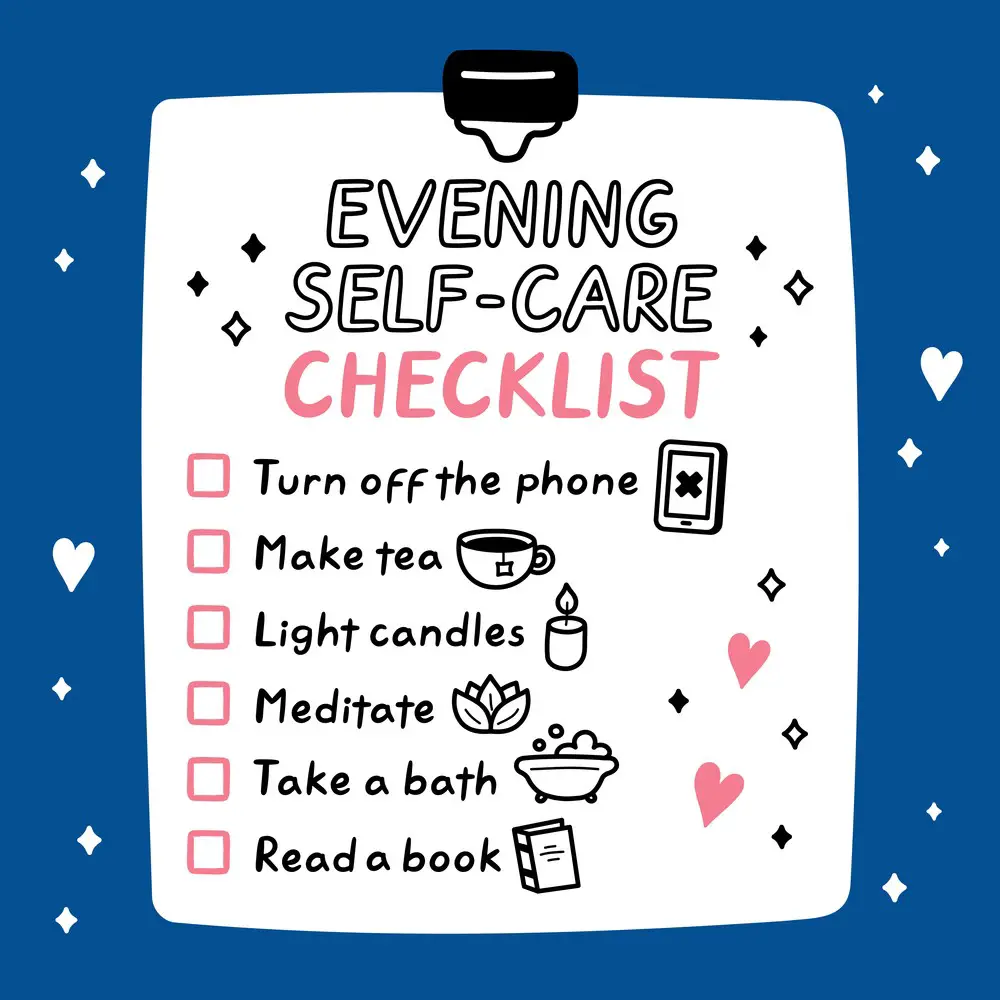 Establishing a relaxing bedtime routine helps you wind down, preparing you to sleep. It also helps your body distinguish between awake time and bedtime, helping most people fall asleep more quickly.
Establishing a relaxing bedtime routine helps you wind down, preparing you to sleep. It also helps your body distinguish between awake time and bedtime, helping most people fall asleep more quickly.
Ideally, it would help if you started your routine up to an hour before bedtime. Any activities that will help you relax will qualify as a bedtime routine, but avoid catching up on work emails or social media chats at this time because the blue light emitted from electronic devices has a negative effect.
Here are some ideas for a good bedtime routine if you need to know how to increase deep sleep:
- Use this time to have a shower or warm bath. There are two reasons this works – water relaxes the body, and after a warm bath or shower, your body temperature drops, leading to sleepiness.
- Gentle stretching is another way to release tension and relax, preparing the body for better sleep.
- Meditation works the same as stretching since it helps to calm the mind and body.
- Listen to gentle music while focusing on your breathing.
- Reading a book is another relaxing activity you can add to your bedtime routine, as long as it’s not on an electronic device.
- Don’t use this time to have an emotionally stressful conversation or work. These can overstimulate or stress you.
Prioritize Exercise
Exercise is very beneficial to sleep quality. You don’t need to exercise more than 30 minutes daily, but ensure it’s aerobic. If you can, exercise outside for the added benefits of sunlight exposure, but don’t worry if you can’t get outside, as long as you exercise regularly.
However, timing your exercise is critical to get the most benefits for your sleep quality. It’s best to avoid strenuous exercise for up to two hours before bed because it can raise your body temperature and increase energy levels, making it more difficult to fall asleep. Yoga stretches, or any other stretching, is best if you can only exercise later in the day, but try taking a quick 15-minute walk at some point during the day.
Manage Stress Levels
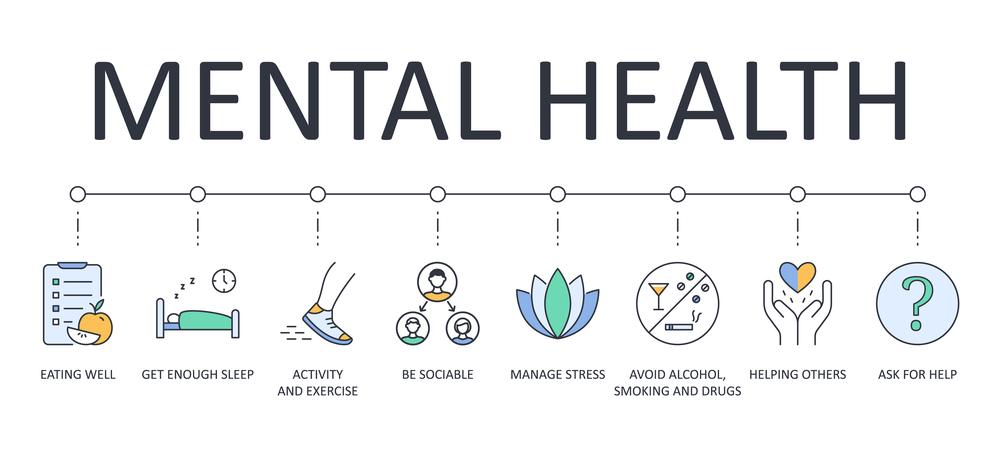 If you want to know how to increase deep sleep, it’s vital to understand that stress levels can make it more difficult. Not only will stress affect your deep sleep, but it will also make it more difficult to fall asleep.
If you want to know how to increase deep sleep, it’s vital to understand that stress levels can make it more difficult. Not only will stress affect your deep sleep, but it will also make it more difficult to fall asleep.
But how to get rid of stress and anxiety? The best way is with calming activities like meditation, deep breathing, stretching, yoga, and relaxation exercises. Other calming activities include reading, listening to soft music, and taking a warm bath or shower. Additionally, avoid any stressful discussions for the following day.
Stress levels and anxiety can severely affect sleep and well-being, so if you find that your self-care routine is not working, it’s best to speak with your doctor about getting some help with its management.
Avoid Stimulants
Several substances are considered stimulants, and most of these can affect deep sleep. These include medications like opioids used for pain and some benzodiazepines used to help with anxiety and insomnia. Caffeine, alcohol, and recreational drugs can also affect the quality of your sleep. Nicotine is another stimulant that’s known to disrupt sleep, and it’s often associated with several sleeping problems.
Limit Screen Time
The blue light produced by electronic devices like tablets, smartphones, and TVs can reduce the body’s melatonin levels. The blue light also tends to alert the brain, distracting it from sleep.
Melatonin is a vital chemical for controlling the sleep/wake cycle. When melatonin levels dip, falling asleep can be more difficult. Even if you don’t use your phone while in bed, it’s better not to keep it next to you at night because every time a message or email comes through, it will light up or beep, interrupting your sleep.
Seek Professional Help
 All the information about increasing deep sleep may not be enough if you are having trouble sleeping. In this case, you may need an evaluation from a medical professional. They will assess if you have a sleep disorder and provide treatment to help you return to a typical sleep pattern, including deep sleep.
All the information about increasing deep sleep may not be enough if you are having trouble sleeping. In this case, you may need an evaluation from a medical professional. They will assess if you have a sleep disorder and provide treatment to help you return to a typical sleep pattern, including deep sleep.
Deep sleep has many healing functions for the body and mind, making it essential to achieve. Here are its most important:
- During deep sleep, the body releases growth hormones crucial for tissue repair and healing.
- Deep sleep plays a significant role in processing learning and sorting long-term memory from data collected daily.
- Deep sleep may contribute to creativity and problem-solving skills because it helps the brain to reorganize and restructure.
- Researchers have found that a lack of deep sleep makes it harder to accurately identify critical social cues and process emotional information, impacting relationships. Therefore, it’s crucial for emotion regulation and processing. Read more about how it clears the brain from waste, perhaps helping with dementia, in this article from the Sleep Foundation.
- It supports your metabolism and glucose levels. Research suggests that a shortage of deep sleep raises the odds of developing type 2 diabetes because it seems to lead to reduced insulin sensitivity.
- During deep sleep, the immune system produces a protein called cytokines, which boosts the immune system by fighting off infections, inflammation, and stress. Additionally, it also releases some disease-fighting substances that combat bacteria and viruses.
A doctor may prescribe medication or sleep aids to help you increase your deep sleep, which may not always be medications. These include:
Melatonin Supplements– If your doctor determines that you lack the hormone naturally produced to regulate your sleep-wake cycle, they may give you a supplement to use nightly to improve your sleep quality and the time it takes to fall asleep. You will take this for a few months.
Valerian Root – Since ancient times, people have used valerian root to relieve anxiety, insomnia, and stress. Drink valerian as a tea or take it as a supplement.
Chamomile – Another ancient therapy that promotes sleep is chamomile. If you don’t have an allergy to ragweed, then it’s safe to drink chamomile tea to help you sleep. It’s mild and effective.
Cannabis – In some cases, doctors may prescribe cannabis to encourage slow-wave sleep.
Unveiling the Signs: When It’s Time to Consult a Sleep Specialist
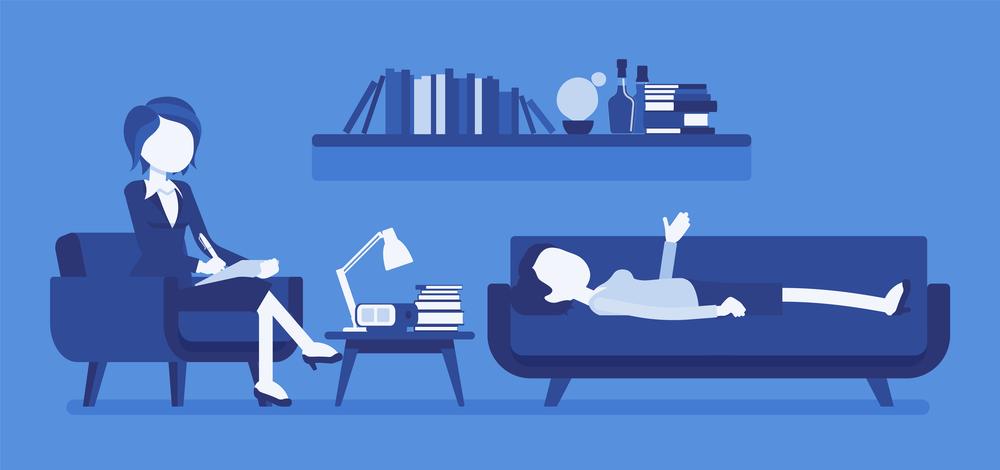
Diving deep into restorative sleep through hygiene, environment, routines, and lifestyle adjustments can significantly enhance the quality of your deep sleep. As we’ve explored strategies ranging from optimizing your sleep sanctuary to managing daytime stressors, it’s crucial to be equipped with tools for improvement and the knowledge to identify when these issues transcend the scope of self-help.
Recognizing the signs that necessitate professional intervention can be the linchpin in transforming your sleep health. Here’s what to keep an eye out for:
- Persistent Insomnia: Lying awake night after night, despite your best efforts to adhere to a solid bedtime routine and sleep hygiene practices, might indicate underlying conditions that a sleep specialist can address.
- Excessive Daytime Sleepiness: If you constantly battle the urge to nap despite a full night’s sleep, it could be a sign of sleep disorders such as sleep apnea or narcolepsy.
- Snoring or Breathing Interruptions: Loud snoring, gasping, or choking sounds during sleep can be sleep apnea symptoms, which disrupt sleep and lower its quality, requiring medical attention.
- Frequent Nighttime Awakenings: Waking up often during the night and having trouble falling back asleep might be a sign of sleep disorders or environmental factors that a specialist can help diagnose and treat.
- Chronic Fatigue or Mood Changes: Ongoing feelings of fatigue, depression, or anxiety despite sufficient sleep duration can be linked to poor sleep quality or other health issues.
- Unusual Sleep Behaviors: Sleepwalking, night terrors, or talking during sleep can indicate a sleep disorder that might benefit from professional evaluation.
Tips for Taking the Next Step
If these signs resonate with your experience, consider the following steps to take control of your sleep health:
- Document Your Sleep: Keep a sleep diary detailing your bedtime routine, sleep schedule, and any disturbances. This information can be invaluable for healthcare providers.
- Consult Your Primary Care Provider: Share your concerns and sleep diary. They can provide initial assessments and referrals to sleep specialists.
- Prepare for Your Consultation: List your sleep concerns, any efforts you’ve made to address them, and any questions you have for the specialist.
Remember, reaching out for professional help is a sign of taking proactive steps toward improving your health and well-being. By intertwining self-guided strategies with expert advice when necessary, you’re setting the stage for nights filled with deep, restorative sleep.
- How to Transform a Home’s Patio Space into a Relaxing Space - March 23, 2025
- 5 Strategies to Use a Cell Phone to Help Manage Your Stress - March 23, 2025
- 4 Ways to Use Measurements to Create a Relaxing Sleep Space - March 23, 2025
This site contains affiliate links to products. We will receive a commission for purchases made through these links.



